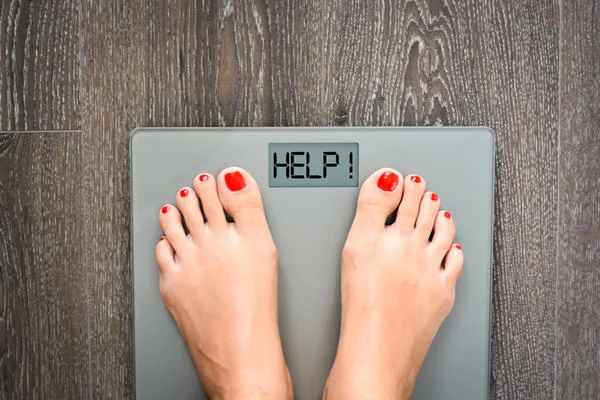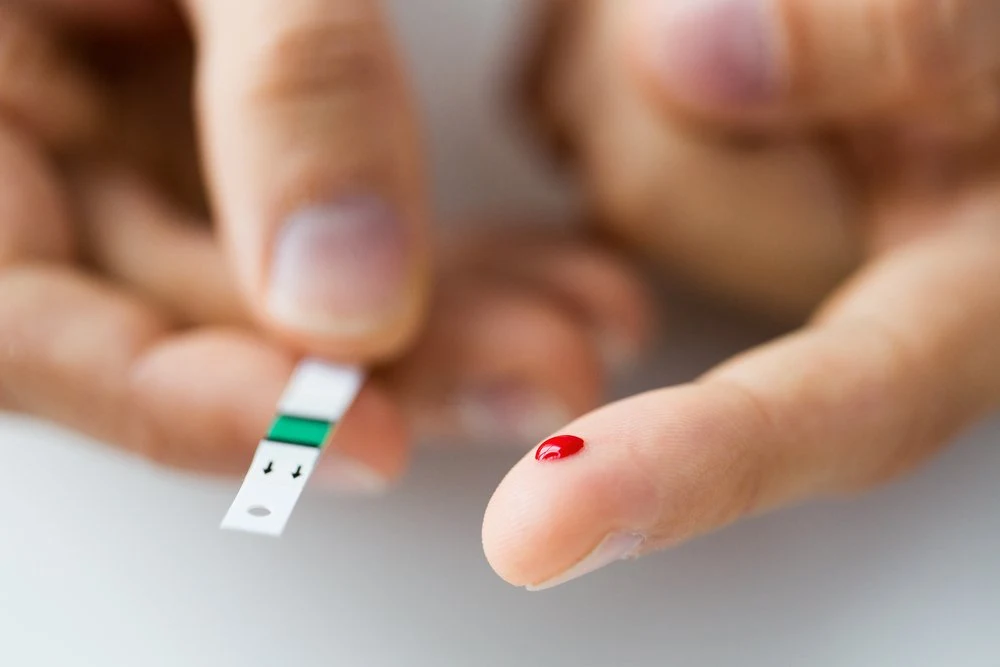Weight Gain: Why Do You Gain Weight Fast? 10 Medical Explanations
Weight gain often results from overeating or lack of exercise, but can also be explained by these 10 medical causes.
Hypothyroidism can lead to weight gain
In this case, your thyroid gland, a butterfly-shaped gland located at the base of the neck, is not producing enough thyroid hormone, which plays a crucial role in metabolic balance.
With your metabolism in slow motion, everything you consume is stored as fat rather than being converted into energy.
"It's a common autoimmune disease that affects six times as many women as men," says Dr. John Dornan, director of the Active Living Clinic in Saint John, N.B. "It's a common autoimmune disease that affects six times as many women as men.
If your doctor thinks you may have hypothyroidism, he or she can give you a thyroid hormone test (TSH) to check your gland's function and, if necessary, prescribe hormone therapy.
Weight gain is not the only symptom of a thyroid problem.
You gain weight because of an oral contraceptive (the pill)
MULTI-SHARE/S
However, they have the disadvantage of promoting slight weight gain.
"This is because estrogen has an effect on the body's storage of fat, as evolutionary needs have forced a woman's body to gain weight in order to nourish the developing fetus," says Lorraine Watson, Assistant Professor in the Faculty of Nursing at the University of Calgary.
"When estrogen levels are raised, this mechanism is disrupted.
"You could ask to have your prescription changed, as not all contraceptives have the same effect, or you could use non-hormonal methods of contraception, such as the IUD.
Antidepressants can lead to weight gain
Prescription antidepressants alter the balance of chemicals in the brain.
There are many molecules for this purpose, including atypical antipsychotics, which have recently been developed and are considered the most effective.
However, according to Dornan, these drugs lead to weight gain.
"In most cases, patients gain a little weight, but for some, the gain is significant, while for others it is zero," he explains.
If you are taking or are about to take antidepressants, make the necessary lifestyle changes to prevent this potential weight gain, such as increasing exercise, changing your eating habits, and getting enough sleep.
Type 2 diabetes
MULTI-SHARE/SType 2 diabetes manifests itself by insufficient production of insulin or resistance to this hormone.
If being overweight is the cause of the disease, diabetes treatments can lead to weight gain.
"Insulin therapy and various other classes of drugs are associated with weight gain," says Dornan.
In addition to advising you on lifestyle changes such as exercising more and eating less, your doctor may also prescribe metformin, a drug that does not cause weight gain. But be aware that it is not suitable for everyone.
Cushing's syndrome could explain your recent weight gain...
This rare disease, also known as hypercortisolism, consists of an overproduction of cortisol by the adrenals, glands that help regulate blood pressure and metabolism.Symptoms include weight gain (especially in the upper trunk, neck, and face), fatigue, high blood pressure, and elevated blood sugar levels.
Cushing's syndrome is caused by a variety of factors, including long-term use of hormones to treat conditions such as asthma, or a non-cancerous tumor.
Depending on the underlying cause, surgery, radiation therapy or a drug that inhibits cortisol production may be used to treat the syndrome.
Polycystic Ovary Syndrome (PCOS)
This is a hormonal imbalance that leads to the formation of cysts, or small fluid-filled sacs made up of eggs that have not been released by the ovaries.It can disrupt ovulation and lead to weight gain, menstrual problems, increased facial hair, and sometimes acne, says Dornan.
It's also associated with insulin resistance and, therefore, type 2 diabetes.
Your doctor will first recommend certain lifestyle changes and prescribe a medication such as metformin, which regulates metabolism and balances hormones.
"Thiazolidinedione is sometimes prescribed to treat the insulin resistance associated with the syndrome and to limit weight gain," says Dornan.
Hormone therapy can lead to weight gain
At menopause, estrogen levels drop significantly, causing a variety of symptoms, including hot flashes and night sweats, for which the doctor may prescribe hormone replacement therapy.Hormone replacement therapy can cause water retention. "This excess water inevitably leads to weight gain, which depends on the dose of medication prescribed," concludes Lorraine Watson.
The only solution to this problem is, once again, to review your eating habits and exercise program to take into account the changes brought on by menopause.
Steroids
Corticosteroids, which are used to treat rheumatoid arthritis, asthma or other conditions, reduce painful inflammation but can cause water retention.
"In addition, people tend to be less physically active when they take them and, as a result, burn fewer calories," says Dornan.
In the treatment of rheumatoid arthritis, they are used to suppress immune activity.
If the ones you take make you fat and don't give you the relief you need, your doctor may consider another type of treatment.
"Sometimes we use other immunosuppressants that don't cause weight gain but have other side effects," he says.
Lower metabolism can lead to weight gain
Added to this are the weight effects of the slowing metabolism associated with aging."The older we get, the more lean muscle mass we lose, so our metabolism slows down, especially if we don't exercise every day," says Larry Tucker, a professor of exercise science at Brigham Young University in Utah.
In a recent study of 192 middle-aged women, Larry Tucker found that women who had adopted stricter eating habits were 2.4 times less likely to gain 6 or more pounds over three years than those who had been less careful.
On average, women with more strict eating habits consumed about 200 fewer calories daily than women in the second group.
The solution: Exercise while on a diet and make sure you get enough protein. Your body will burn off your fat reserves rather than your muscle mass.
Aerobic exercise is a good way to increase your metabolic rate.
"Skipping meals can have a negative impact on your metabolism," says nutritionist Aviva Allen.
Your body will start storing excess fat in anticipation of a possible lack of food.
Worse yet, if you are too hungry at your next meal, you may make poor food choices or eat too many large portions.
Instead of abstaining from food, eat small portions of nutrient-rich foods or snacks frequently (ideally every three hours).
Also, eating regularly increases your chances of success while skipping meals is not a realistic way to achieve this in the longer term.
Pay attention to your eating habits
When you have been on a diet for some time, you may become less vigilant.
You may have resumed some bad habits: for example, spreading a thick layer of butter on your toast, snacking while cooking, or having dessert every night.
These little things can provide enough extra calories to keep you from losing weight.
Researchers have found that people don't realize that they eat much more on the weekend, especially on Saturdays when they tend to eat more fatty foods.
The extra calories taken on the weekend slow down weight loss.
To combat weekend overeating, pay attention to portion sizes, weigh yourself daily (or Friday and Monday only) and watch your alcohol intake, which provides empty calories and lowers your food inhibitions.
To help you, keep a food journal for a few days, which will help you stay aware of what you're really eating.
Researchers have shown that dieters who keep track of everything they eat significantly increase their chances of success.
Name
Lifestyle







